Sen. Marco Rubio (R-FL) has been one of the most vocal critics of the regime of Venezuelan dictator Nicolas Maduro, and the Senator’s announced plans to attend the upcoming Summit of the Americas later this month came right before Maduro’s decision to boycott the event.
The summit, scheduled for April 13 and 14 in Lima, Peru, is part of a series of meetings of the Organization of American States (OAS), the countries of North and South America, that have been held every few years since 1994. Various member nations have been suspended from the OAS over the years: Cuba in 1962 and reinstated in 2009, and Honduras was suspended in 2009 after a coup ousted President Manuel Zelaya and reinstated in 2011 after Zelaya returned from exile.
Venezuela has been threatening to leave OAS since last year over what it claims was interference in their elections. However, as Rubio and other Maduro critics have repeatedly pointed out, the 2017 elections were not free elections in any sense of the words. Maduro has long been a brutal oppressor of his own people, leading to a nationwide starvation crisis, and replaced the legitimately-elected National Assembly with a “Constituent Assembly” consisting of his loyalist cronies.
This past February, Peruvian President Pedro Pablo Kuczynski announced that Venezuela’s invitation to the summit had been rescinded, citing the “undemocratic” 2017 elections as the reason. A few weeks later, Kuczynski was forced to resign after a messy international corruption scandal, and his successor, Martin Vizcarra, had not reinstated Venezuela’s invitation.
Nonetheless, Maduro had still vowed he would attend the summit “come rain or shine, by air, land, or sea,” but reversed course this week, after President Donald Trump announced on Tuesday that he would not attend in order to focus on the response to the reported chemical weapons attack in Syria, and Rubio confirmed shortly thereafter that he would attend. Also attending in the president’s stead will be Vice President Mike Pence.
The Miami Herald reported that despite Rubio not being a head of state, he is still expected to have a significant impact at the summit, in no small part because of his perceived role as a “Trump whisperer” on Latin American issues:
No one can replace the president, but the other 30 or so Latin American leaders at the summit know that Rubio has Trump’s ear and is seen as the president’s principal adviser on Western Hemisphere issues, particularly those involving Venezuela and Cuba. Rubio also knows many heads of state in the region personally…
Rubio has been extraordinarily influential on Latin American issues in the Trump administration. Besides the president, Trump’s nominee for secretary of state, Mike Pompeo, also listens to Rubio’s advice on the region…
It was Rubio who gave the Trump administration a list of Venezuelan officials who were sanctioned last month and before.
Rubio also helped draft a revised Cuba policy that led to Trump’s first presidential visit to Miami to fulfill a campaign promise to the conservative Cubans who helped him win the White House.
This influence Rubio has, both with our own White House and the Latin American heads of state, is undoubtedly weighing on Maduro’s mind.
The son of Cuban immigrants and a fluent speaker of Spanish, Rubio has the moral authority to criticize dictators in the region like Maduro and the Castro regime in Cuba — plus the ability to communicate directly with these Latin American officials in their own native language. A senator cannot conduct official diplomatic relations on his own, of course, but Rubio’s ability to connect with these leaders and promote America’s goals and priorities directly to them cannot be disregarded.
Yesterday, in a hearing for the Senate Foreign Relations’ Subcommittee on Western Hemisphere, Transnational Crime, Civilian Security, Democracy, Human Rights, and Global Women’s Issues, which he chairs, Rubio discussed the upcoming summit and highlighted the opportunities for America to “demonstrate its continued commitment to this region” and promote the restoration of democracy in Venezuela and Cuba.
The following is a partial transcript of Rubio’s remarks, as provided by his Senate office:
This week, the Eighth Summit of the Americas will be held in Lima, Peru. The President was scheduled to attend. It’s now been announced that because of events in Syria and the U.S. response, he will not be attending. But the Vice President will be attending in his stead. And his attendance, at the highest levels of American government with the Vice President attending, is an opportunity to demonstrate this administration’s continued commitment to this region.
The theme of the Summit is “anti-corruption in the hemisphere.” And at the summit, it is my hope that the Vice President will build on this theme by promoting and showing the willingness of the United States to help our partners in the region build the capacity for good government practices.
In addition, I also hope the Vice President will outline for our neighbors his commitment to actively partner with our regional allies on three other important initiatives:
- Regional security partnerships to take on transnational criminal networks;
- Ensuring the fair treatment of U.S. businesses and firms in the region;
- And promoting the U.S. as a partner of choice over external state actors like China and Russia who actively engage in unfair and predatory business practices in the region and around the world.
But there is little doubt that the situation in Venezuela will and should be the dominant issue at this 8th Summit of the Americas.
Venezuela under the regime of Nicolás Maduro, as well as his cadre of other corrupt officials, has systematically dismantled the institutions of democracy in Venezuela.
- He created a fraudulent Constituent Assembly made up of loyalists to supersede the legitimately-elected National Assembly.
- Instead of providing food and medicine for his people, he has purchased Chinese made anti-riot vehicles and equipment for the National Guard to use to suppress protestors.
- He has enabled and encouraged the rise of pro-government gangs known as Colectivos to repress protests through murder and to intimidate voters on election days.
- He has weaponized food. Venezuelans are required to provide government-issued identifications to buy food or to receive government-issued food and medicine. Maduro uses these identifications to reward supporters with access to food and medicine and to punish and intimidate opponents and their families by denying them food and medicine.
- He has used corruption as a weapon by rewarding loyal senior military officers with lucrative corruption opportunities, putting them in charge of the national oil company and of the distribution of critical consumer goods, which they can then resell in the black market or take for themselves.
- He has used his neighbors in Colombia, and increasingly Brazil, as a relief valve by allowing over 50,000 Venezuelans a day to cross borders to buy food that is unavailable in Venezuela.
- And, just like his mentors in the Castro regime – they have done this since 1959 – he has used migration as a weapon. Since 2014 over 2 million Venezuelans, the vast majority of them opponents of the Maduro regime, have abandoned Venezuela.
This well-orchestrated strategy to replace Venezuela’s democracy with a dictatorship has all occurred under the guidance of his puppet masters in Havana. It is both ironic and lamentable that a Summit, which is supposed to be a gathering of the democratic nations of the region, has invited the Cuban dictatorship, which has authored the Venezuelan tragedy and the Cuban one before it. And a country which harbors fugitives of American justice—including the killer of a New Jersey police officer—and invites them to be a participant in all of this.
However, it is promising that the Summit’s host country, Peru, has rescinded the invitation to Maduro to participate in this year’s event.
I encourage the Vice President to outline several initiatives to promote the restoration of democracy in Venezuela and to end the suffering of the Venezuelan people. The ranking member and I have worked on a couple of these already, in a bill we hope we can get passed on humanitarian aid.
- First is, I urge him to announce that the United States is prepared to make an immediate and substantial contribution to a regional and international effort to provide food, medicine and other humanitarian assistance to the people of Venezuela right now, so long as that aid is distributed by credible non-government organizations and not taken by the government to be used the way they are using food and medicine now.
- Second, it is my hope that the Vice President will announce that the United States is prepared to make a substantial contribution to a regional and international effort to help rebuild Venezuela once it has conducted free and fair elections for President, has abolished the illegitimate Constituent Assembly and has restored the legitimate elected National Assembly.
- And third, I hope the Vice President openly calls on the nations that are members of the Organization of American States to expel the undemocratic Maduro regime from the OAS, a collection of democracies.
Venezuela and Cuba are not the only threats to democracy in the Hemisphere. Corruption is as much a threat to democracy as any single government. And there is no nation-state that contributes more to corruption in this region than the government of China. The Chinese government is using bribery as a way of gaining contracts in the region, and as a way of gaining political leverage to force nations to support their agenda, such as cutting off relations with Taiwan, and also as a way of creating an unfair playing field for American companies who seek to do work in the region. And I urge the Vice President to make it clear that this is unacceptable. And that it will be a priority of this administration to aggressively confront the corrupt practices of the Chinese government, and Chinese-controlled firms, in our hemisphere.
In addition, the summit also provides an opportunity to demonstrate that America intends to be not just a good neighbor, but a reliable ally and partner with our friends in this region.
As evidence of this, I urge the Vice President to:
- Recommit our support for the Alliance for Prosperity with Honduras, Guatemala and El Salvador;
- To recommit his support for our trade and security cooperation with our allies in Colombia;
- And to demonstrate the importance of our vital regional partners in Brazil, a nation that has much to offer as a regional power and to the world, by announcing the permanent suspension of tariffs on Brazilian steel and aluminum.
Since January of 2017, I believe this administration has made the Western Hemisphere a priority. Vice President Pence has already traveled to the region last year. He will return now for the summit. Earlier this year, both the previous Secretary of State and the Ambassador to the United Nations traveled to the region. As has been documented, the president made adjustments to our policy towards Cuba. And this president has demonstrated a firm and steadfast commitment to democracy in Venezuela through a series of sanctions against the Maduro regime that have been calculated, well-targeted, and measured, and that have been done in conjunction with our allies in the region, in what I think is an unprecedented regional response. We haven’t seen this in decades in our part of the world. And I think this visit by the Vice President to the Summit also shows our strong commitment to the region.
This weekend the Trump administration has an opportunity to demonstrate that its decision to make 2018 “the Year of the Western Hemisphere” are not just words. But rather, words that are backed up with real actions. This is what I hope they will do. And this is what I believe they will do.
Follow Sarah Rumpf on Twitter: @rumpfshaker.
[Cross-posted at The Capitolist.]


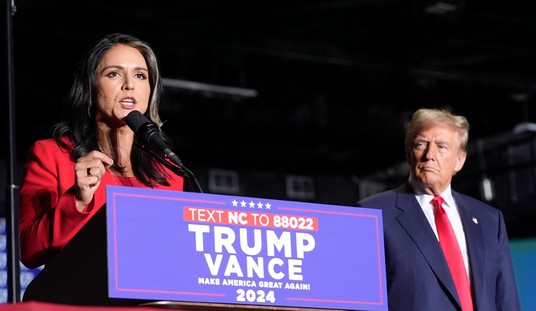

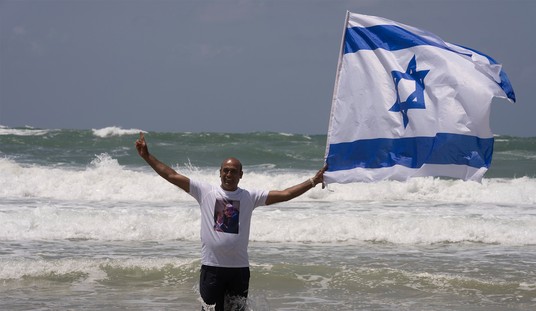
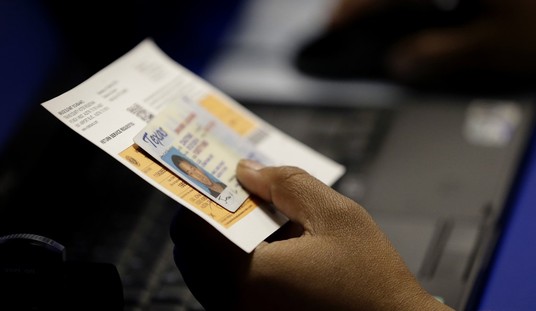
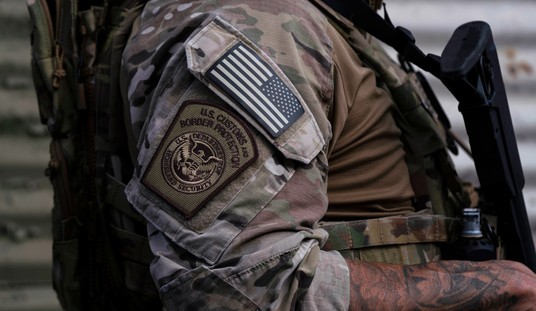
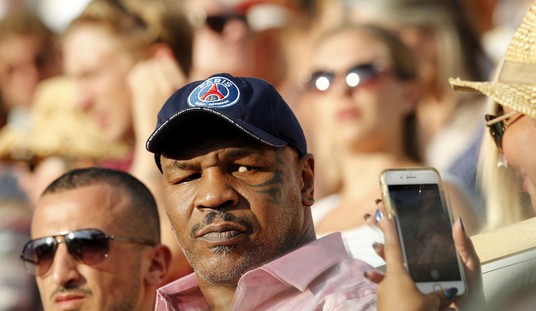

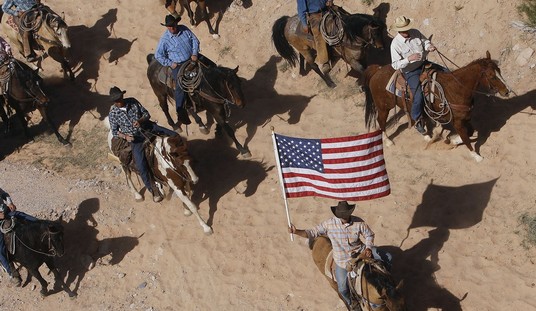
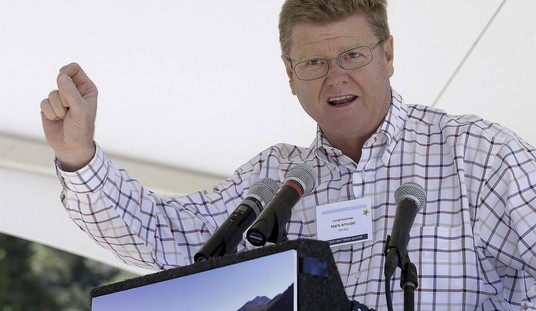

Join the conversation as a VIP Member